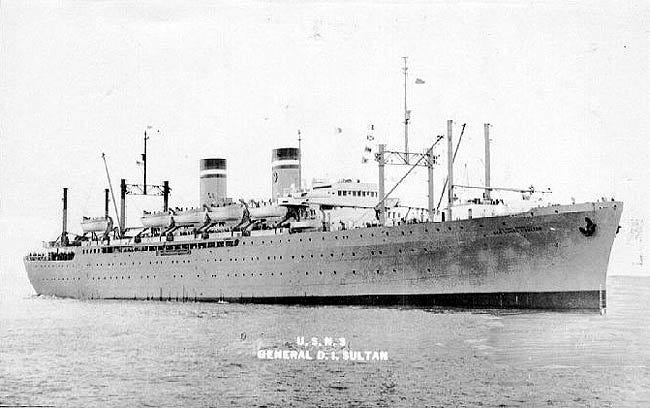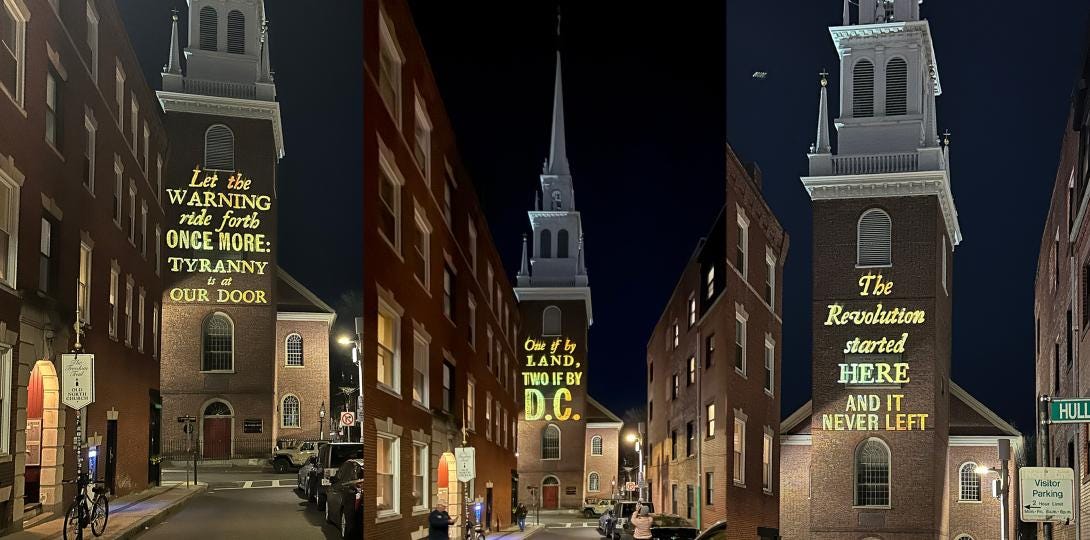Labor Woes & Merrie Melodies
#189: Then & Now, Art (website), Mele Kahalepuna Chun, Neighborhood programs, Silence DoGood, Brett Graham, Danny Gregory, Junyee, Nat Myers, Béla Fleck and Billy Strings
THEN:
All the protests taking place in the US this weekend remind me of the 1934 Waterfront Strike. I’m doing some research on Filipino involvement in that event. My father said he attended strike meetings in San Francisco, one of which was violently broken up by police. By all accounts, the response to the 1934 strikes—including the 1934 lettuce strike in Salinas—was violent. I’m trying to figure out the extent of Filipino involvement in the waterfront strikes during that year, and have posted some preliminary info in the Commonwealth Cafe section of this newsletter (see menu above).

Speaking of labor, as early as 1956—in his letter of June 22 (written from the USNS General Daniel I. Sultan), my father was talking about quitting his maritime work. He wrote that the “working condition in our section is getting too unbearable now.” In addition, he was fed up with unpredictable pay periods and work schedules that made it difficult to estimate when he could mail checks out to Mom, and when he would be able to return home.
According to the present schedule, we would be back in Fresco [sic] on the 23rd of July. I just don’t know how true this is. Lately I lost faith with this schedule business that they are passing around due to the fact it has been misleading many times.
When I read this letter, I realized that Dad’s perceptions of his work situation came on the heels of all the hard labor he had done since the early 1930s in agriculture and in the service sector. I think he initially had hopes for better conditions in the maritime work he had undertaken since the onset of World War II, but it became just another laborious, low-paying job that also kept him away from his family.
In November of 1957, one of Dad’s letters finally mentions Mom’s cannery job. He was hoping the new babysitter was working out for us (named Jan, who lived across the street with her two kids), at least until the canning season was over. But he also worried that Mom might be taking on too much:
Just remember honey, if things is getting tougher on you regarding the baby-sitting for Jeanne, I want you to just stop working. don’t try to take too much chances for we can’t afford it. Okay, darling?
The rest of the letter was taken up with reporting the usual schedule changes. But in August of 1958, he was still hanging on to his job. Dad’s letters continued to express his frustration with pay and scheduling. He was still wondering if he should “get off this time” (for good) or wait until after the next trip.
As a young child, I was unaware of these concerns. I was more conscious of my mother’s efforts at creating a respectable home in Santa Cruz. She seemed determined to acquire all the things that a modern American home was supposed to have according to radio and television advertisements.
A television set seemed to epitomize the American home for her, and eventually she purchased an Admiral TV, which was ceremoniously set up in the living room. At first, the TV was enough of a novelty that neighbor kids would drop by to watch shows. Soon, however—just as with computers and smartphones today—every family in the neighborhood had their television, and everyone subscribed to TV Guide magazine.
With both my mother’s and father’s families absent, I think that television became a kind of extended family for me. To some extent, it also became my babysitter and “advisor,” and shaped how I thought about adulthood, gender, and relationships. Everything I knew about World War II, for example, came from the TV. My mom’s few anecdotes about the war could not compete with the dramas played out on the TV screen.
Back to Bataan, featuring John Wayne:
When Dad was home and my parents were (ahem) snuggling in the bedroom until 10 a.m., I was binging on cartoons, and watching old WWII movies, where I learned about Nazis and the “yellow peril” of Japanese kamikaze pilots. Movie stars like John Wayne, Marilyn Monroe, and Bob Hope loomed large and competed with the Mickey Mouse Club, Merrie Melodies cartoons, Captain Kangaroo, Lassie, old Fred Astaire musicals, and the Ed Sullivan Show.
The Merrie Melodies cartoon below (1954) had a feminist message that was unusual for the 1950s:
Actually, most of the films I watched in those days portrayed a “Father Knows Best” family life, with a patient mom and dad who were present for all crises that their three kids might encounter. My father, on the other hand, dispensed his advice from aboard a faraway ship, and spent his nights worrying about his wife and daughter and whether or not he could take another month of grueling work on the high seas.
NOW:
On April 19, in a 7-2 vote, Supreme Court Justices decided to lay down the law and block illegal deportations by the Trump regime, saying that “deportations could proceed only if those about to be removed had a chance to argue their case in court and were given ‘a reasonable time’ to contest their pending removals” (AP News). The point, of course, is to allow due process of law. On the same day, in a timely op-ed, conservative columnist David Brooks, in the New York Times, called for a mass, non-partisan uprising against the Trump regime. Meanwhile, tens of thousands protested in the US against Trump policies; and, as the country celebrated the anniversary of Paul Revere’s midnight ride, “Silence DoGood”1 lit the spire of Boston’s Old North Church with two lanterns accompanied by several concise messages.

Recently, the current administration has ignored some court orders. But this decision by SCOTUS is a big one. How will Trump respond? We’ll likely hear about it soon—probably on Monday!
ART
I haven’t been doing much art in the last couple of weeks. But I did make a change to my website. It won’t look much different to you, but the difference is in the URL. I replaced the Wordpress URL with my own domain: https://jeanvengua.com
Curiously, working on my website gives me creative feelings that are similar to making art. I like keeping my site fairly minimal in design, and find pleasure in rearranging things to my satisfaction. So, I guess it’s an artistic activity, too.
RABBIT HOLE
The art of featherwork, by Mele Kahalepuna Chun:
Neighborhood arts programs are important, providing a creative and communicative outlet for residents. We have one in Salinas Chinatown, run by Urban Arts Collaborative. Here is an article about Neighborhood Arts Programs in San Francisco.
Neighborhood Library programs are important, too! If you’re in Santa Cruz, check out this upcoming event on April 24, with Dr. Ann López on “Understanding California Farmworker Experience.”
More about “your humble servant,” Silence DoGood.
Pasifika/Moana Artist Brett Graham on the stories and history behind his installation art:
Danny Gregory (Sketchbook Skool) may have been lying to us. In this video he advocates for his favorite “lumpy, bumpy” and unique art vs. “academic, polished” realism. Me: Whatever you do, don’t be constrained by “perfection” and other people’s standards; stay open to your quirky, individual expression:
At the 12th Paris Biennale, Philippine installation artist Junyee (Luis E. Yee, Jr.) addresses the problems of plastic garbage polluting the environment in that country in his work “Breeding Ground.”:
SOUNDINGS
Country Vibes:
Nat Myers, a Vietnamese American born and raised in Kentucky, sings his song “Yellow Peril.” Myers is currently suffering from a rare form of stage 4 cancer. See this PBS feature on Myers. His medical care is being funded by friends and supporters through his Go Fund Me page.
Béla Fleck and Billy Strings instrumental, “Boulderdash”:
My gratitude goes to everyone who reads Eulipion Outpost regularly, and especially to those who have subscribed or donated on my Ko-fi page to support my efforts.
My ongoing appreciation goes to the Mysterious M. for his excellent editing skills.
Website and blog: Jeanvengua.com
A Crooked Mile (a blog)
CommonwealthCafe (Filipino American & AAPI history and print culture)
Eulipion Outpost is a reader-supported publication. To receive new posts and support my work, consider becoming a free or paid subscriber.
A grassroots art collective inspired by Benjamin Franklin’s alter-ego, Silence DoGood.




